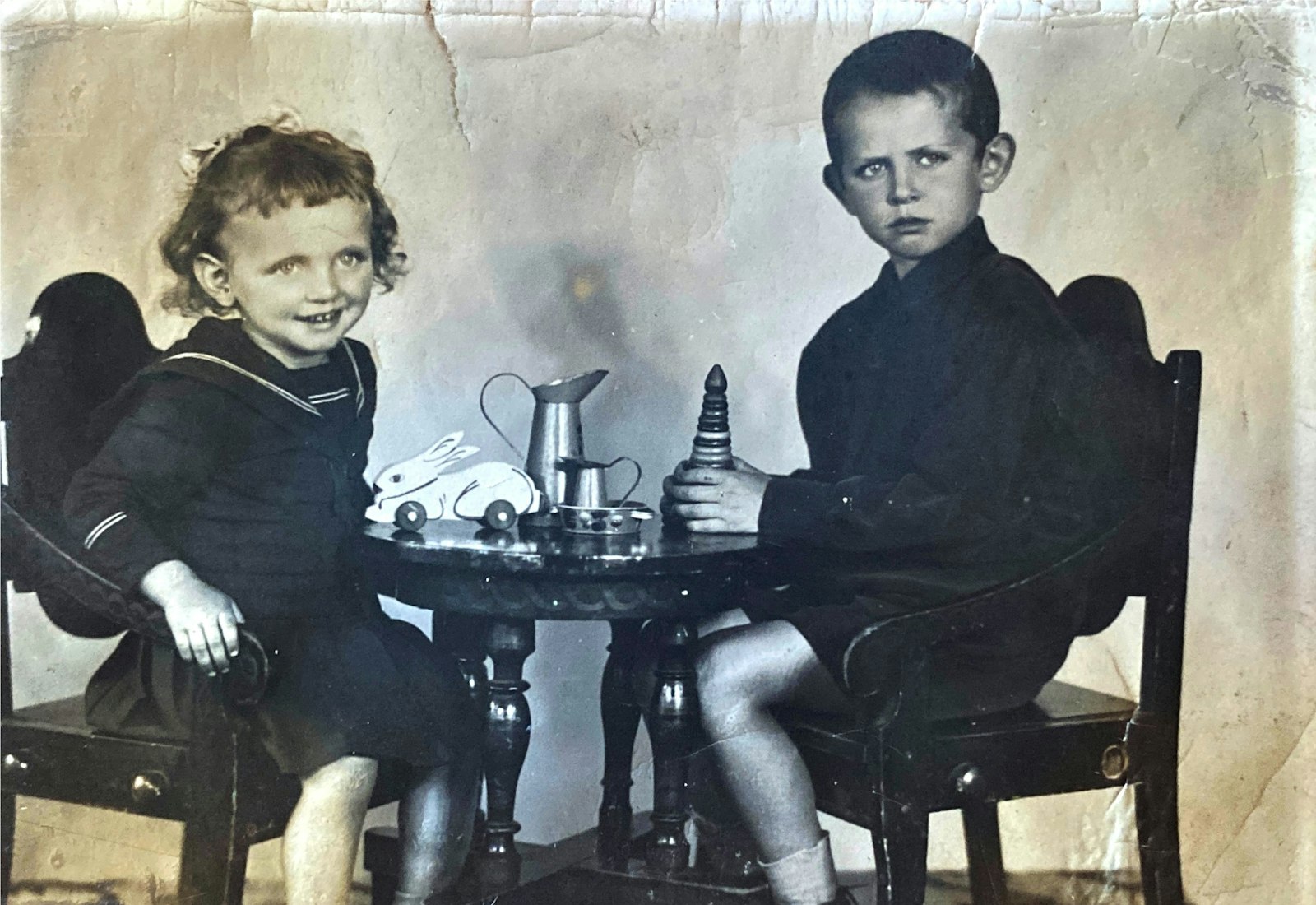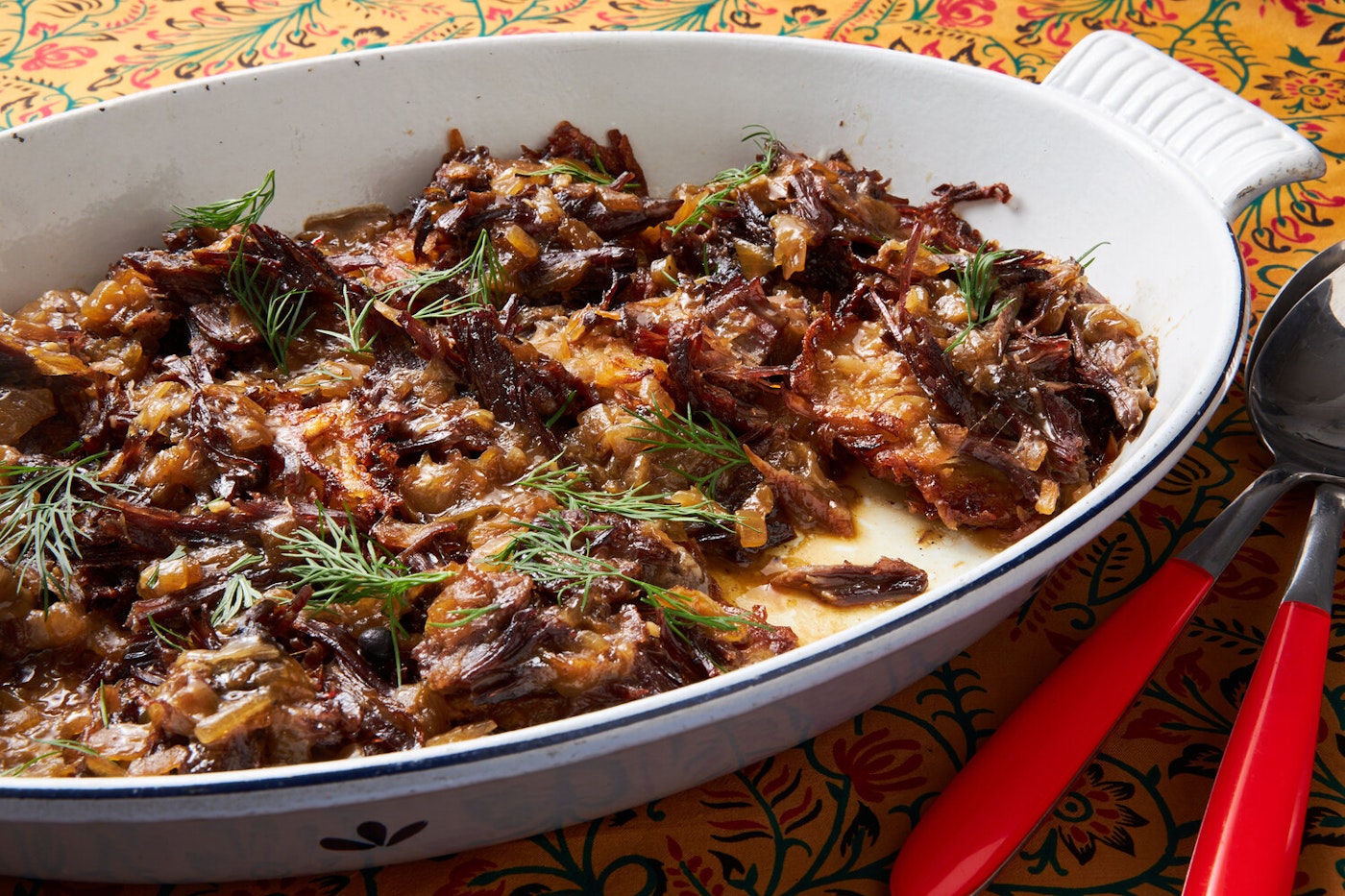Shared by Elizaveta Vigonskaia

“Everything was my mom,” Elizaveta Vigonskaia says in a lyrical Russian accent. “She was the one who was proud of us, she was the one who was [a] bowl of sun in our home.” Elizaveta was always with her mother, Ester Raize, learning how she cooked and how she moved strongly through life. “We were one person, I still remember,” she says.
Elizaveta remembers in 1941 when her father was drafted and left to fight in World War II. He told Ester to stay in Kyiv where they lived and wait for him to return from the war. Instead, she fled the city with Elizaveta and her brother, and a friend and her two children. Together, they made it onto the last train out of the city, Elizaveta recalls, making their way to the Ural mountain region farther east. A week later, Nazi forces arrived in Kyiv and massacred over 30,000 Jews at Babi Yar.
In 1945, Elizaveta, her mother, and brother returned to Kyiv and her father came home from the war. By 1946, Elizaveta had another brother and the Soviet Famine of 1946 and 1947 had taken hold in Kyiv. Elizaveta recalls waiting three, four, and sometimes even five hours in line for a loaf of bread that she would bring home to share. “My mom tried everything” to ensure the family survived, Elizaveta explains. A doctor prescribed fish oil, which could be sourced from a pharmacy, to provide nourishment. Ester used it to fry the few potatoes she could gather, making latkes to sustain the family.
In time, the Soviet Famine ended and Elizaveta recalls her mother making latkes at holidays when potatoes and onions were easier to come by. As Elizaveta became an adult, she too made latkes, but never with fish oil. The scent, and even the memory of it, still recalls the years after the war when food was scarce.
Today, Elizaveta makes latkes for her family often. Her rendition nods to abundance, topping potato pancakes with rich braised beef. It’s a recipe and tradition she brought with her when she left Ukraine in 1991 for California, the year after her mother passed, and to New York where she retired.
The family has kept Ester’s memory alive in the years since. Elizaveta’s son fondly remembers his grandmother, referring to her as “flower” in Russian. Ester’s legacy extends beyond her memory though. It is a way of existing as an intertwined unit. “In my family [with my mother], There was love, care, and friendship,” Elizaveta says. “And now, I have the same in my son’s family.”
Editor’s Note: This story and Elizaveta came to the archive through Selfhelp, a non-profit organization focused on providing services to elderly New Yorkers. It is also the largest provider of services to Holocaust survivors in North America. Learn more about Selfhelp here.
